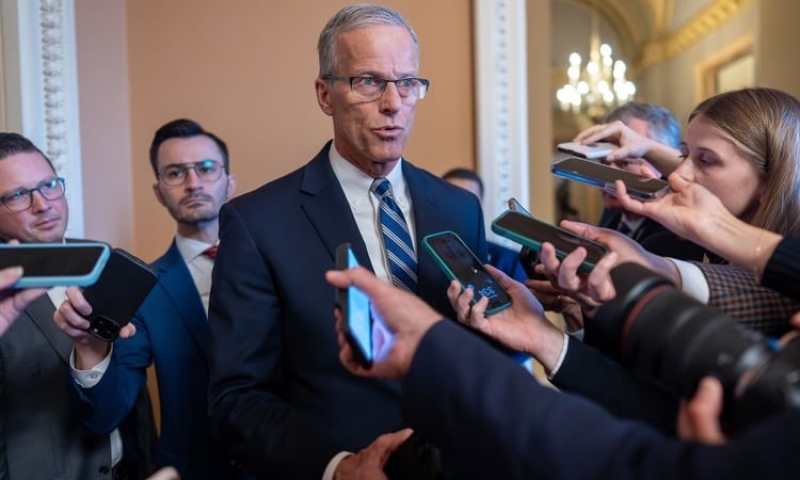- Middle East War Puts Bangladesh Jobs at Risk |
- Starmer criticises Trump, defends UK position not to allow use of its bases |
- Iran War: Nuke watchdog urges restraint amid ongoing strikes |
- 80pc tube wells in Chhatak run dry; water crisis acute |
- Advance Eid train ticket sale begins |
Senators Reach Deal to End Longest US Shutdown

US senators announced a bipartisan agreement on Sunday to restore federal funding and end the record 40-day government shutdown that has disrupted services and strained key sectors, including national air travel.
The agreement, reached after weeks of negotiations between Democratic and Republican senators, is a preliminary step in reopening government operations. It comes amid mounting warnings that air travel across the United States could slow dramatically, with thousands of flights already cancelled or delayed over the weekend.
The deal would provide temporary funding through January, addressing disputes over health care subsidies, food assistance and the recent dismissal of federal employees. As news of the breakthrough circulated, President Donald Trump said, “It looks like we’re getting very close to the shutdown ending.”
The Senate moved swiftly to hold a procedural vote on Sunday, with enough Democratic support to advance the measure. Once approved by the Senate, the bill must pass the Republican-controlled House of Representatives before being sent to the president for signature, a process expected to take several days.
Transportation officials warned earlier that continued shutdown disruptions could severely affect Thanksgiving travel later this month. On Sunday alone, more than 2,700 flights were cancelled and nearly 10,000 delayed across major hubs such as New York, Chicago and Atlanta.
The deal would restore funding for the SNAP food assistance programme, safeguard back pay for federal workers, and reverse recent dismissals of government employees. It would also guarantee a vote on extending Affordable Care Act premium subsidies due to expire at the end of the year.
However, divisions remain. Several Democratic senators, including Senate Majority Leader Chuck Schumer, criticised the agreement for offering only a future vote on health care subsidies rather than securing an immediate extension.
“This fight will and must continue,” Schumer said, arguing that the proposal does not fully address the ongoing health care concerns.

